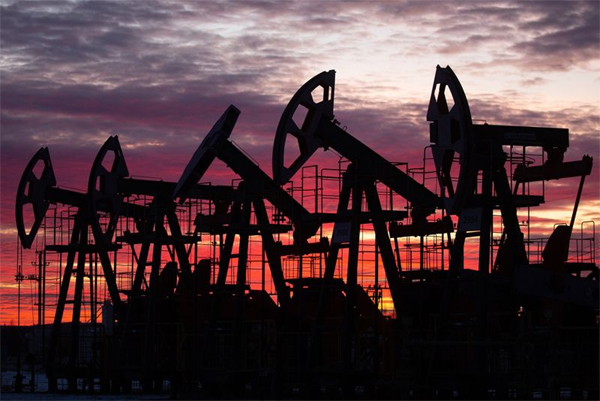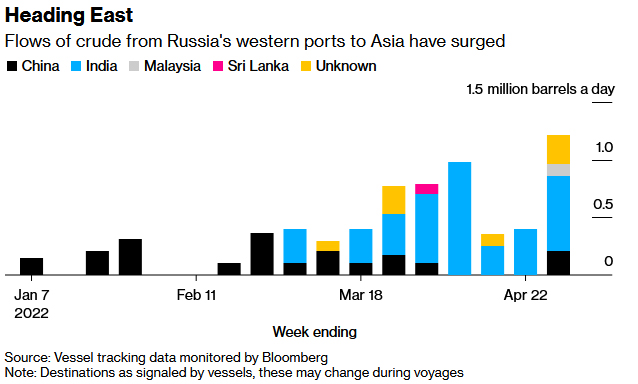
Lin Noueihed, Bloomberg News
DUBAI
EnergiesNet.com 05 09 2022
More than two months into the war in Ukraine, the European Union has reached a historic decision to wean itself off Russian oil. It’s OPEC+ that could decide, however, if the pain is felt more deeply in the Kremlin or the pockets of Berliners.
The oil-exporting cartel’s alliance with Russia has complicated the West’s push for bigger production increases to ease inflationary pressure that’s threatening to derail the world’s economic recovery.
Festering tensions between the U.S. and traditional Gulf Arab allies including Saudi Arabia, mean they’ve been hesitant to swing behind sanctions on Russia.
All that, in addition to capacity bottlenecks, mean OPEC+ is likely to stick to its planned, modest, output increase when it meets today.
That leaves European consumers grappling with higher energy prices while Russia, a major crude exporter, potentially reaps the benefits.
The EU ban will likely be phased in over six months, giving member nations time to seek alternative energy sources and Moscow a chance to find other buyers to the east, as it’s already doing. China is a big market but even for major Western allies like India, the lure of Russian oil is hard to resist.

European leaders sought to persuade Indian Prime Minister Narendra Modi, during his three-day tour this week, not to blunt the impact of their penalties by soaking up spare Russian oil.
So far, however, the efforts to muster international support for the campaign to isolate Moscow have foundered, reinforcing the bifurcation of the global economy into NATO and its friends on one side, and Russian President Vladimir Putin and his on the other.
That could leave European consumers facing a bigger squeeze.

Stalled advance | Russian forces have been slowed by supply line and morale problems in southern and eastern Ukraine, and haven’t made the progress they wanted, according to the Pentagon. Ukrainian President Volodymyr Zelenskiy said 344 people have been evacuated from in and around the besieged city of Mariupol, where a three-day daytime ceasefire is due to start today.
- The U.S. rushed a cyber team to Lithuania to help defend against online threats that have risen since the invasion of Ukraine.
- French President Emmanuel Macron will meet German Chancellor Olaf Scholz in Berlin on May 9, the day Putin holds an annual military parade in Moscow to mark victory in World War II.
Offered shelter | Sweden and Finland are starting to win assurances of U.S. and U.K. help if they’re threatened by Russia in the period between an expected application to join NATO and eventual protection under the military alliance’s collective security umbrella. The best guarantee would be to “keep the ratification process as short as possible,” Finnish Prime Minister Sanna Marin said.
Energizing issue | Abortion-rights supporters are more galvanized than opponents by the prospect of the U.S. Supreme Court overturning Roe v. Wade, a new poll found, hinting at how a leaked draft opinion may shape the congressional midterm elections in November. About 42% of voters who lean Democratic said it’s more important to vote for a candidate who agrees with their stance compared to 31% of Republicans.
- Abortion advocacy groups said donations for them grew exponentially after the draft opinion to overturn the 1973 ruling that legalized the procedure was leaked.

— With assistance by Alan Crawford, and Muneeza Naqvi
bloomberg.com 05 05 2022












